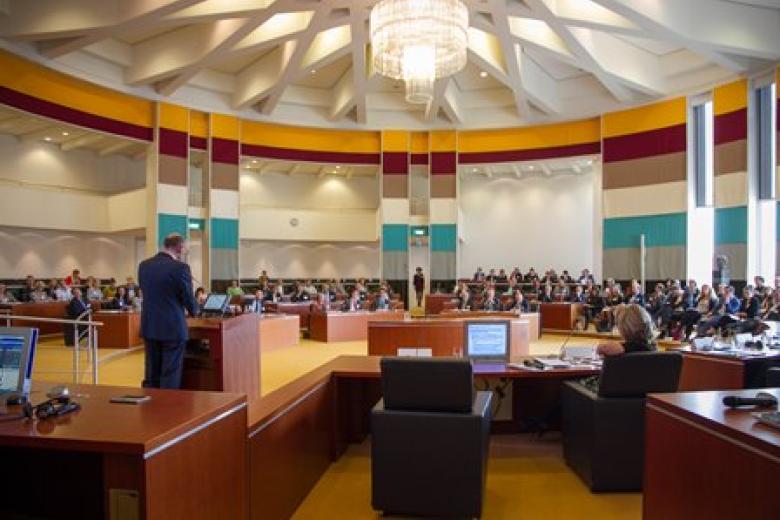Long way to go for tax solutions in cross-border employment
Although in recent years several measures have been taken to solve problems in cross-border employment, harmonisation of tax and social security systems between countries is still a bridge too far, Professor Marjon Weerepas stated in her inaugural speech entitled 'Grenswerkers: coördineren: niet omdat het niet kan, maar omdat het moet?'. She delivered her speech on 21 December, when she accepted the endowed chair Fiscal Aspects of Cross-Border Work at the law faculty of Maastricht University. Weerepas will focus on research into tax and social security contributions in cross-border employment issues. In particular, her efforts will concentrate on finding answers as to whether coordination of taxation and social security contributions can, or even must, be achieved in all cross-border situations, and whether there are situations in which this is impossible or even undesirable.
Differences between countries in terms of social legislation, treaty interpretations and labour force complicate cross-border employment mobility and create coordination problems. Differences include the long wage payment in the Netherlands in the event of sickness in contrast to other countries, or the statutory pension system; unlike the Netherlands, Germany and Belgium don’t have a resident system such as the Dutch state pension (AOW). Regarding labour force, there are many more part-time workers in the Netherlands than in Germany.
Another factor that impedes coordination between countries, is the existence of different forms of border employment. Questions that rise: where should what be taxed and where and how much social security contributions should be paid? Weerepas states that the regulations not only affect the employee, but also the employer. Inadequate and bureaucratic coordination can disrupt the relationship between the cross-border worker and his employer. It can also have an impact on the economic situation. Weerepas: “If you consider that the rates of social security contribution and taxation can vary enormously from country to country, it doesn’t take much imagination to see that employers and employees sometimes come up with lucrative constructions of applicable rules.”
According to Weerepas, the importance of solving obstacles is evident. "Cross-border work has a considerable importance, because cross-border workers are often the first explorers of the internal market, where many opportunities lie for workers, employers and the economy. Provided that regulation is well-designed”.
Both tax and social security contributions are subject to very different coordination rules in cross-border situations. As far as taxation is concerned, these are the tax treaties or, if they do not exist, the national regulations. These treaties should avoid double taxation (positive conflict of laws), but should also prevent tax from being payable nowhere (negative conflict of laws). The same applies to the obligation to insure, which in most cases gives rise to the levying of premiums; avoid double insurance or no insurance at all for a person. Weerepas: "The question is whether coordination between the two areas is desirable and what solutions can be found. Paris, where the OECD is based, and Brussels, the European heart of the European Union, were not built on a single day, but both bodies should, in my view, consult each other more on the applicable rules for the different forms of cross-border employment.
Read the full text of the inaugural speech (in Dutch).
Prof. Marjon Weerepas works at UM’s Institute for Transnational and Euregional cross-border cooperation and Mobility / ITEM.
Also read
-
Designing solidarity
EU immigration and asylum law are plagued by disharmony and dysfunction. Lilian Tsourdi, assistant professor of International and European Law, is investigating how to improve the situation.

-
ITEM starts feasibility study ‘cross-border professional recognition card’.
One of the obstacles is the recognition of professional qualifications. Therefore, ITEM is announcing its intention to carry out a feasibility study about creating a “cross-border professional recognition card”. The final “cross-border professional recognition card” would be a tool developed to...

-
ITEM publishes effects for border regions in first cross-border impact assessment
The Institute for Transnational and Euregional cross border cooperation and Mobility / ITEM, established in 2015, has the important objective to identify the effects of laws and regulations for border regions. Therefore ITEM launched its Cross-border impact assessment in 2016. The results of this...
